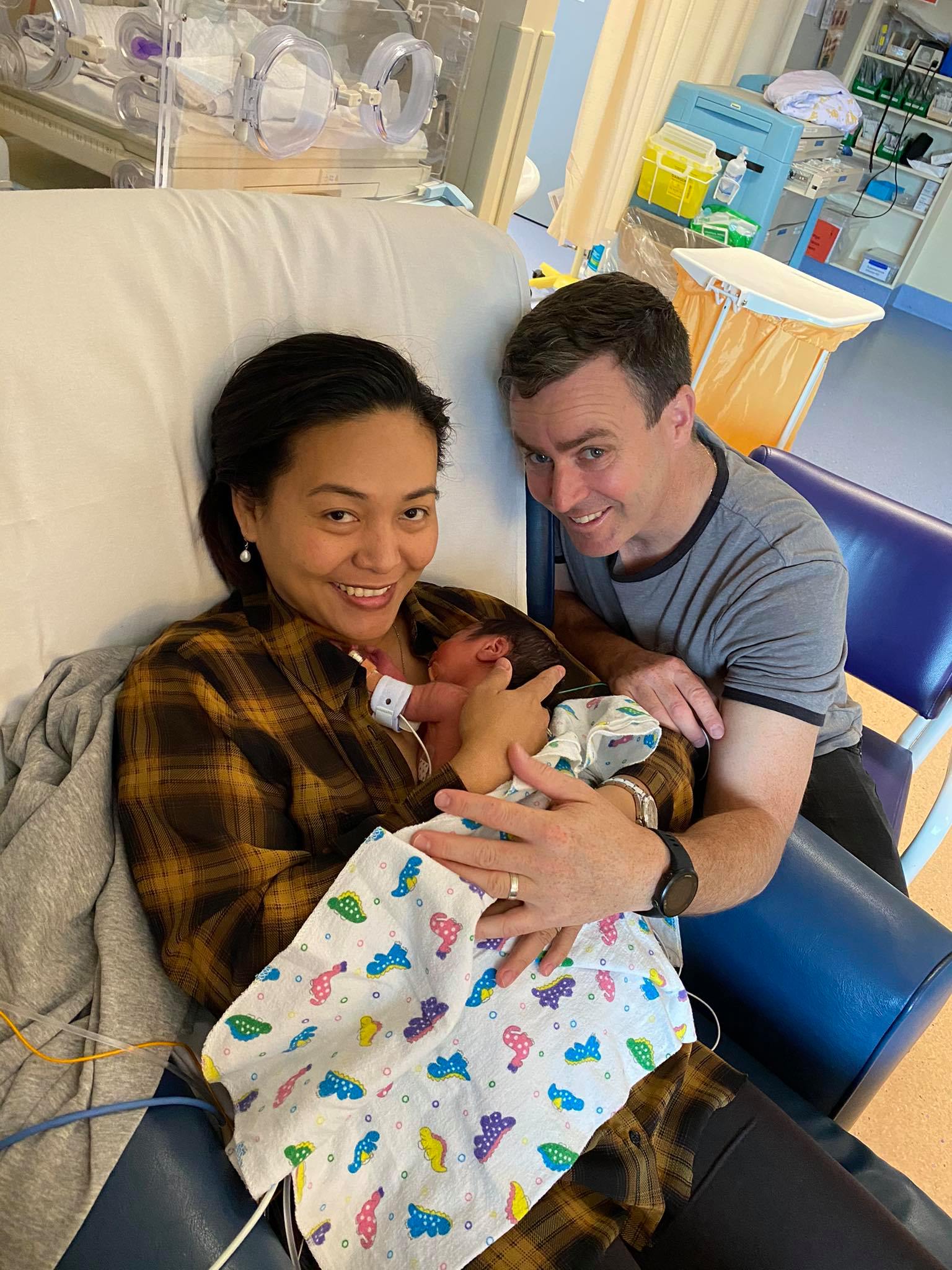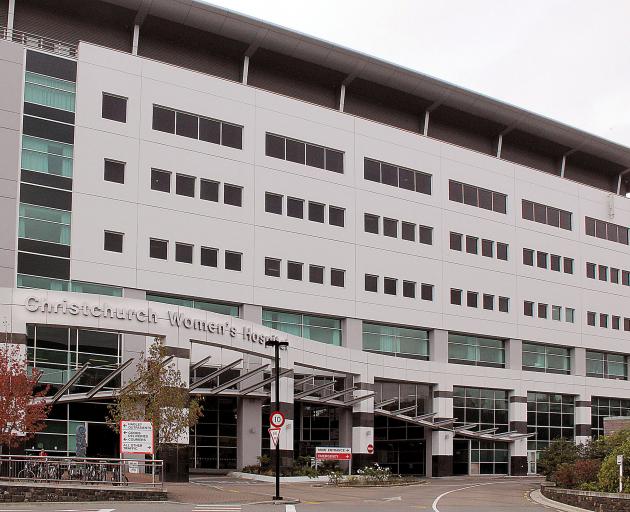
Midwives advised her and husband Dave that the neonatal intensive care unit was well over capacity at the time and could not accommodate any more babies.
But as they were about to be transferred to Dunedin, the situation changed at the last minute when it was deemed no longer safe for McQueen to travel.
"We didn’t have time to react," McQueen said.
"As if having to deliver our child eight weeks too early isn’t shocking enough, we really just dealt with the news as they gave it to us.
"I knew that they had mine and my baby’s best interests in mind when they suggested to move us to another hospital with a well-equipped neonatal intensive care unit."
McQueen was 31 weeks pregnant when her son decided to make his entrance into the world last month, weighing more than expected for his age at 4.2 pounds.
She said nothing sudden or obvious happened to trigger her water to break. At first, she thought her bladder was leaking - until it kept going.
"I rang my midwife immediately who instructed me to go straight to hospital," McQueen said.
"It was only when the results came back from a test after I gave birth revealing that I developed an infection in my placenta that will eventually affect the baby.
"At that point, the baby’s natural defence mechanism took its course."
Midwives tried their best to delay the birth and stop the labour with medication.
She was told that due to the neonatal intensive care unit’s over-capacity, it would be ideal if she did not go into labour - "but my baby had other plans".
After about eight hours, he was born.

"When required, for capacity-related reasons, we do need to transfer mothers with high-risk pregnancies to other regions with available NICU beds before they deliver their baby,” Austin said.
CDHB director of midwifery Norma Campbell said one moment of time did not represent whether the birthing suite was over capacity.
"Just like ED, it can move very rapidly, from being manageable to operating at full capacity, and vice versa, within the course of a day,” Campbell said.
Data supplied by the CDHB reveals an average of 418 inpatient deliveries during December at Christchurch Women’s over the past seven years - excluding home births and births at St George’s Hospital.
But last December and January, the numbers were 426 and 449 respectively. Maximum resourced capacity at the Christchurch NICU has increased from 41 to 44 babies.
Austin said additional nurses are put on to cover higher occupancy rates.
McQueen said she received adequate care in spite of limited resources.
"Even with limited resources, I’ve never been made to feel like I was a nuisance to them," she said.
Inpatient deliveries at Christchurch Women’s Hospital for December:
2015 – 420
2016 – 415
2017 – 422
2018 – 409
2019 – 412
2020 – 426
Total: 2932
Inpatient deliveries at Christchurch Women’s Hospital for January:
2015 – 476
2016 – 395
2017 – 451
2018 – 461
2019 – 451
2020 – 451
2021 – 449
Total: 3134













